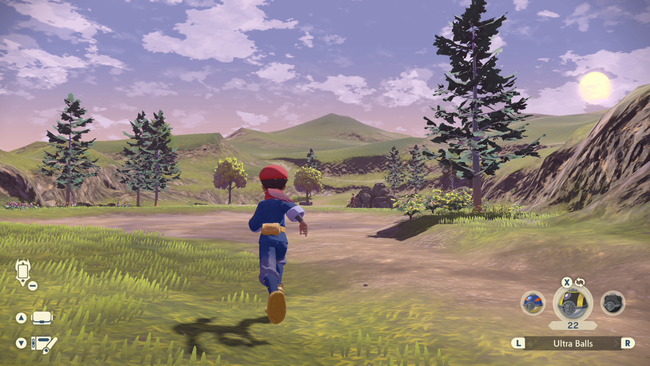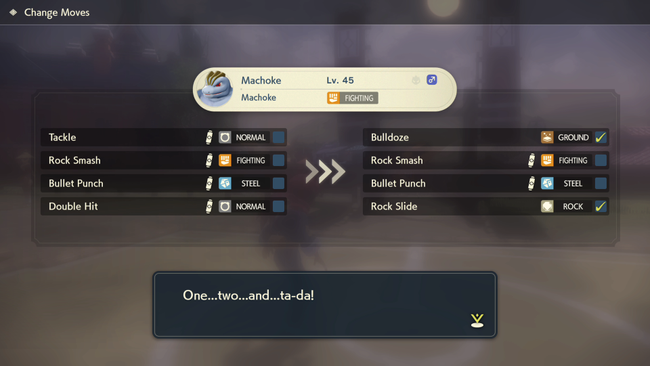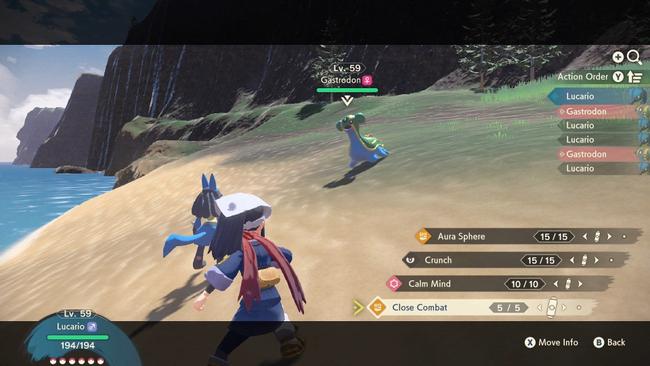
Pokemon Legends: Arceus dials up its RPG mechanics in the best possible way
Sometimes, I think it’s easy to forget that the Pokemon series is one of the world’s biggest Japanese RPG franchises - the absolute biggest, in fact. Its status as a pure-blood JRPG naturally gets lost a little among its arguably more important status as a huge kid-friendly franchise that dominates multiple sectors of the media, not just gaming. With that being said, it all begins with a very staunchly traditional RPG - and we shouldn’t forget that.
It’d be easy to assume that Pokemon Legends: Arceus would contribute to that forgetful train of thought - it is, after all, taking more cues from action games like Monster Hunter and Zelda, games with RPG elements that are regardless less ‘pure’ RPGs than even Pokemon’s original form. But actually, the opposite is true: in many ways, this latest entry is the most full-fat RPG Pokemon has ever been - and that’s really very exciting.
RPG Site doesn’t have a launch day review of Pokemon Legends: Arceus, as Nintendo and The Pokemon Company severely limited how much review code they sent out pre-launch. I did review the game over on VG247, however. An RPG Site review is on the way from another of our brilliant stable of writers, but if you’re desperate you can head over and read my review over there. However, I also felt strongly enough about the way this game levels up its RPG credentials that I just had to write about it here, on launch, so you hardcore genre fans can understand why this Pokemon might be a little more worth your time.

I’d sum up the RPG-relevant headlines into two key points:
- Pokemon Legends: Arceus takes several bold steps to streamline some of the more plodding parts of Pokemon’s battle system, character progression and character progression. Streamlining often means a step back - but in my opinion, these choices actually serve to give Pokemon’s classic systems more depth rather than less.
- One major new addition to the battle system adds a serious extra layer of strategizing to events mid-battle - and it’s reminiscent of some of the genre’s best.
Let’s start with the first point. The systems I’m talking about here generally related to Pokemon move sets, stats, and how your characters grow. The most immediately noticeable change is that evolution is no longer an automatic process you have to stop - when Pokemon are ready to evolve, the game flags it up to you - but it’s up to you to choose when you do it.
Moves undergo a similar transformation. Pokemon will ‘get ideas for’ new moves when they level up, but you’re no longer forced to make a decision there-and-then about if you’re going to learn the new move or eschew it - and if you do learn it, which other move to sacrifice in turn. Instead, Legends: Arceus has each Pokemon have a fulsome memory of their available move list - any move that they have unlocked can be accessed any time via the menu. The difference is that you can only take four moves total into battle, just as always - but out of battle, you can swap moves around at your leisure.

That means there’s no need for trekking back and forth to a move tutor or reminder NPC, and mercifully no more TMs, HMs, or TRs for teaching moves. There’s moves learned via level up, and a single dojo location with a singular move tutor where you pay her and pick which moves you want a particular Pokemon to learn from a list of compatible options. Any move learned can then be swapped in and out at any time; it’s fabulous.
It’s funny what a large difference this change makes. Suddenly Pokemon moves take on less of a feeling of permanence; they begin to resemble concepts like Materia in Final Fantasy VII, or Artes in Tales, where you might think about an upcoming encounter and tweak your move list load out accordingly to better fit the challenge. While Pokemon is definitely still more simplistic in its design and more forgiving in its difficulty, it does provide additional depth while laying groundwork that could be exploited to great result in future games.
The same can be said of a sort of ‘flattening’ of the way stats work, or specifically Pokemon Effort Values. What I mean by flattening is that the playing field is more even - with the right effort values, a Pokemon could easily take on a rival double its level, because the individual EVs of each Pokemon have been made more valuable in this new system. Combine that with making it easier to raise EVs, and you get into an area where plucking a Pokemon from your storage and using it even if it’s some levels behind is suddenly more viable. Again, it widens the strategic scope of the game while nothing that worked before is lost.
The biggest noticeable change is the one hyped up by The Pokemon Company before launch - the new Agile or Strong versions of moves. Usable with any move in the game once a Pokemon has sufficiently ‘Mastered’ it, this basically means every move can have three versions - an Agile version, a Strong version, and the Normal version.
This is all about timing. I know pros deep into the Pokemon meta might say that Speed was already overpowered, but this is deeply interesting to me conceptually. It’s something we’ve seen in other games: Agile moves do less damage, but are faster. Strong moves are heavier and slower. Pokemon is now no longer strictly 1-2, 1-2 turn-based as a result - you can manufacture scenarios where you get to attack multiple times in a row. A turn order display can be opened at any point in battle to see the lay of the land up to six turns ahead - and make a plan of attack off the back of it.
Even the flow leading into battles feels like some classic RPGs. The way Pokemon are not out on the overworld and can be consciously avoided, surprised, or head-on attacked injects an element of planning and decision making even before battle begins that just wasn't there in this series before now.

I don’t think I really need to pass judgement here; just describing these changes will immediately speak to RPG fans who have played games with similar features. It’s easy to see how they’d slot into the other tropes of Pokemon and enhance what the series already had to offer. But, for the avoidance of doubt: it works.
I think these changes would work well in any Pokemon game, but they work especially well in the context of Legends, which also introduces a new vision for how this series can be structured. It’s all fresh. For many, many generations now I’ve continued to love Pokemon, but I’ve also struggled with how static this series has been. I became that person that, a few gyms in, would turn off battle animations. Text speed to maximum. Anything to help the grind. I didn’t have that feeling with Legends - in fact, I’m still cleaning up side quests after over 30 hours of play.
So, yes. A full RPG Site review verdict on Pokemon Legends: Arceus will be coming in due course, though not from me. But in the meanwhile: understand that this is in some ways the most RPG Pokemon has been in ages - and it’s far better for it.
If you're convinced and are about to start out on your Pokemon Legends: Arceus story, be sure to check out some of our guides covering things like Choosing the Best Starter Pokemon, Crafting Recipes, Getting more Inventory Space, Redeeming Mystery Gifts, and Type Strengths and Weaknesses - plus our Comprehensive Side Quests Walkthrough guide.